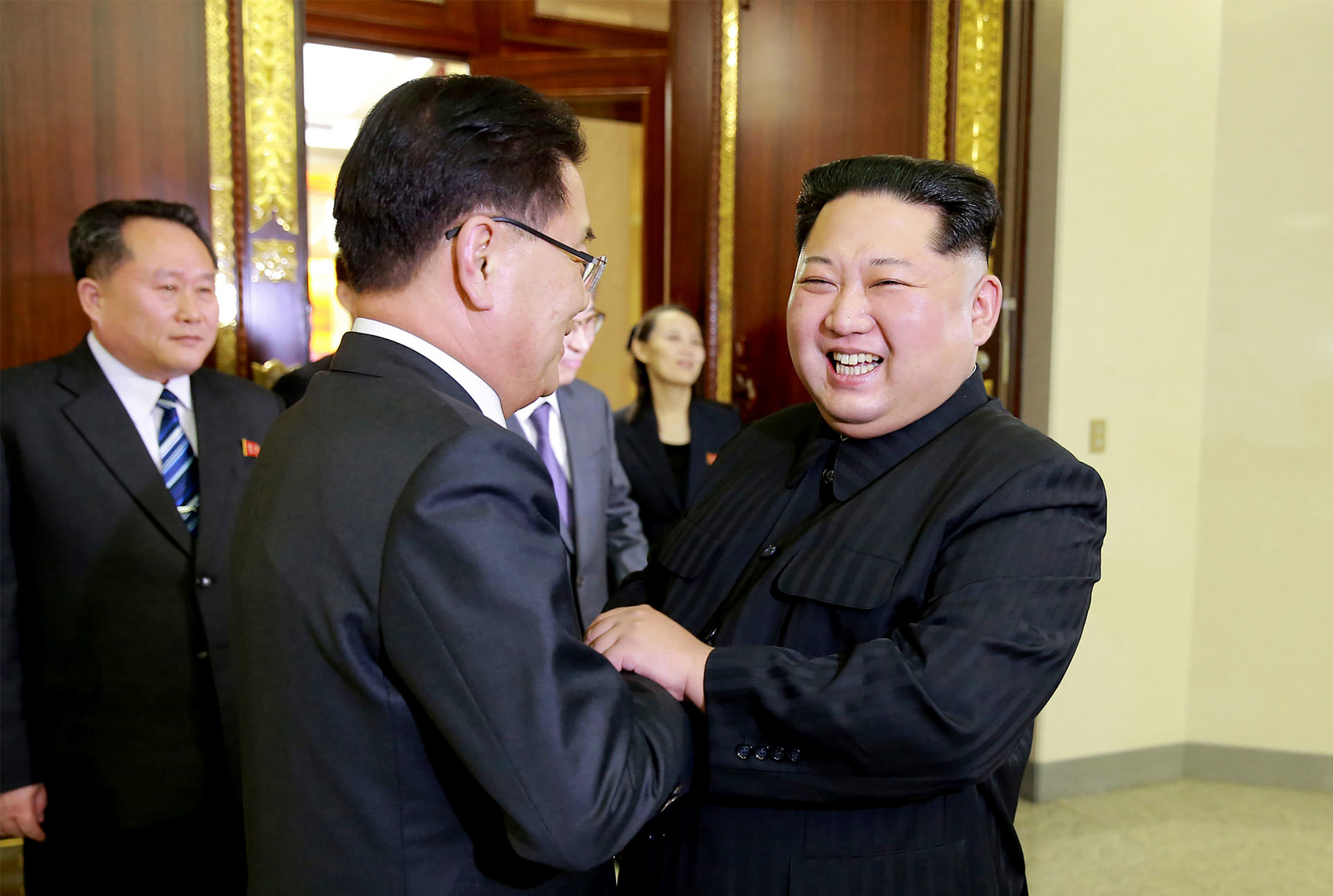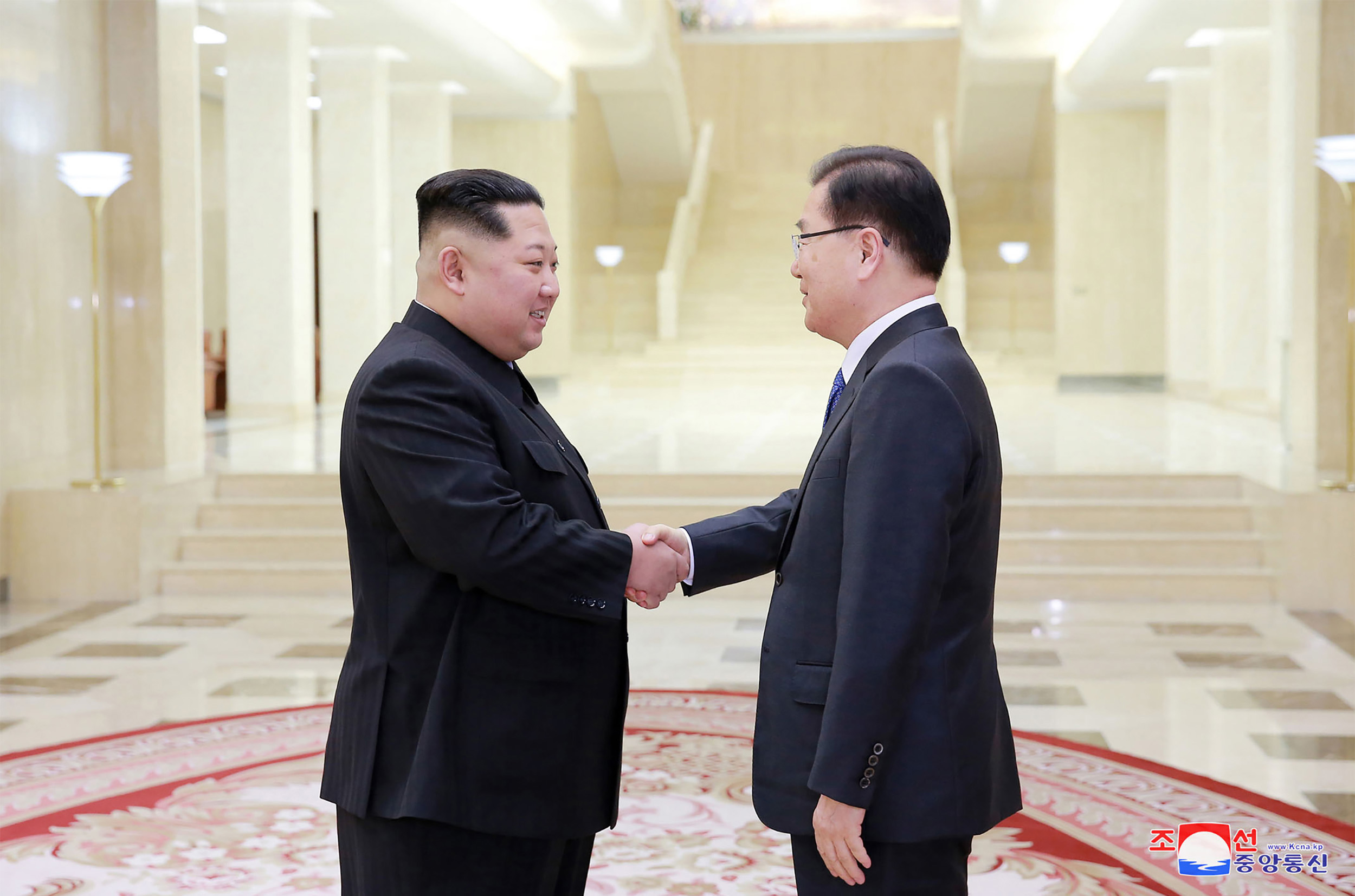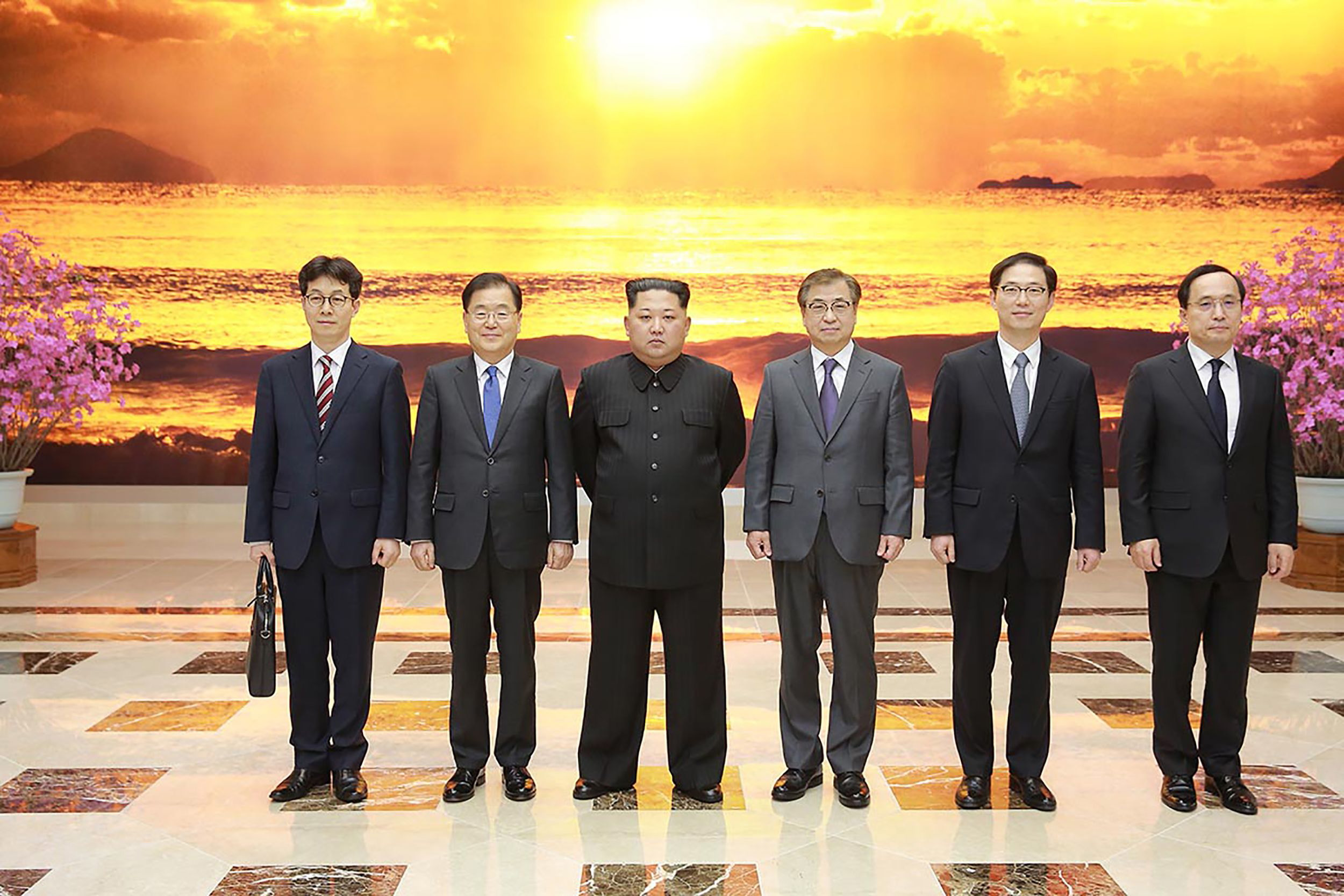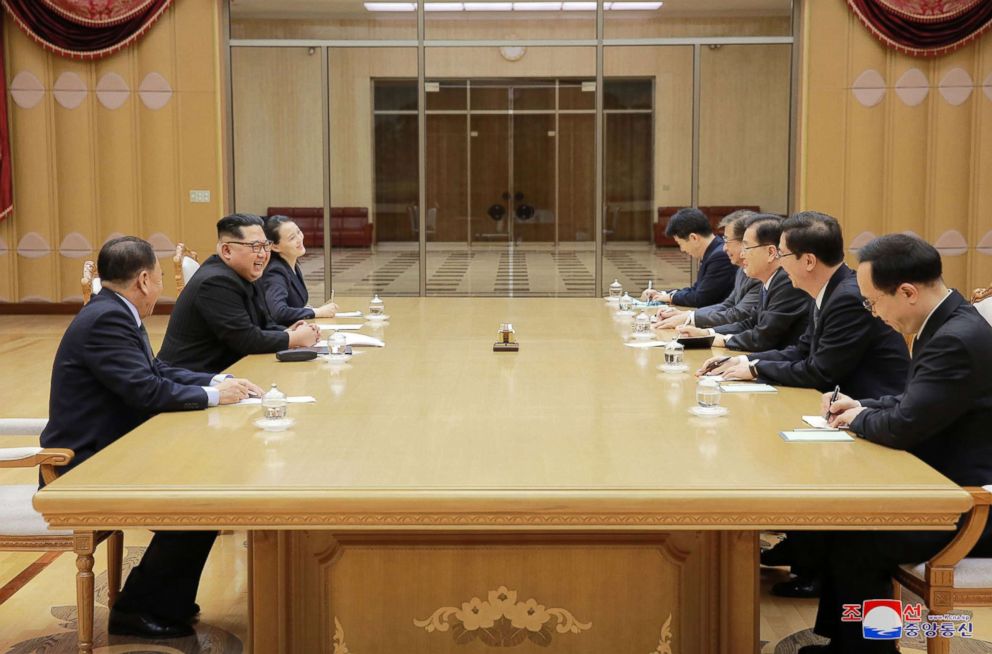North Korea open to abandoning its nuclear program, Seoul says
North and South Korea agreed to hold summit talks at their border.
SEOUL, South Korea -- North Korea expressed a willingness to abandon its nuclear program but only if its safety could be guaranteed, South Korea said today.
A senior South Korean official who had traveled to the North for historic talks with North Korean leader Kim Jong Un said the North also agreed to meet with South Korean President Moon Jae-in on the country's border next month.
Presidential national security director Chung Eui Yong said the North sought to hold talks with the United States and would impose a moratorium on nuclear and missile tests during those talks. The United States has said it would not talk with North Korea unless the North agreed to denuclearize.
Chung spoke to reporters after leading a 10-person delegation to Pyongyang, the North Korean capital. The group included South Korea's national intelligence chief Suh Hoon and its unification minister, Cho Myong-gyon. The two-day visit included the first known meeting between Kim and South Korean officials since Kim came to power in 2011. The North sent a high-level delegation to the South during last month's Winter Olympics in Pyeongchang, South Korea.

"The North clearly affirmed its commitment to denuclearization in the Korean Peninsula and said it would have no reason to possess nuclear weapons if the safety of its regime [was] guaranteed and [the] military threat against North Korea no longer exists," Chung said.
According to Chung, North Korea made clear during the talks that it would not continue nuclear and missile tests as long as dialogue continued.
It also pledged not to use nuclear or conventional weapons against the South, he said.

“The North expressed its willingness to hold open-minded talks with the United States to discuss denuclearization of the Korean Peninsula and normalize North Korea-U.S. relations,” Chung said.
The developments may signal a desire by Kim to be seen more seriously and less as a maverick leader of a rogue regime. The news was received well in the South.
The Trump administration has repeatedly said it will only engage in direct talks with North Korea if it commits to full denuclearization. On Feb. 23, the U.S. put new sanctions on 27 trading and shipping companies, 28 vessels, and one individual for evading U.S. and United Nations embargoes on trading oil, coal, and other fuel with North Korea. The administration also warned it might even impose a military blockade to stop North Korea's nuclear and ballistic missile programs.
Vice President Mike Pence, who recently visited South Korea for the Winter Olympics, and who has often taken the Trump administration lead in dealing with North Korea, issued a statement responding to the North Korean diplomatic bid.
"Whichever direction talks with North Korea go, we will be firm in our resolve," Pence said. "The United States and our allies remain committed to applying maximum pressure on the Kim regime to end their nuclear program. All options are on the table and our posture toward the regime will not change until we see credible, verifiable, and concrete steps toward denuclearization."

Chung also announced that a hotline between Kim and Moon would be installed and that the first phone call would take place before their summit at the end of next month.
If the meeting proceeds as planned, it would mark the first time that leaders of the two Koreas have engaged with each other since October 2007, when the late North Korean leader Kim Jong Il -- Kim Jong Un's father -- sat down with then-South Korean president Roh Moo-hyun.
Before the summit, the Koreas will hold working-level talks. To maintain an atmosphere of reconciliation and cooperation, the North asked for the South's Taekwondo demonstration team and artists to visit, Seoul said.

Chung said the South Korean delegation would brief the United States, China, Japan and Russia on the talks.
ABC News' Ben Gittleson and Alisa Wiersema contributed to this report.




